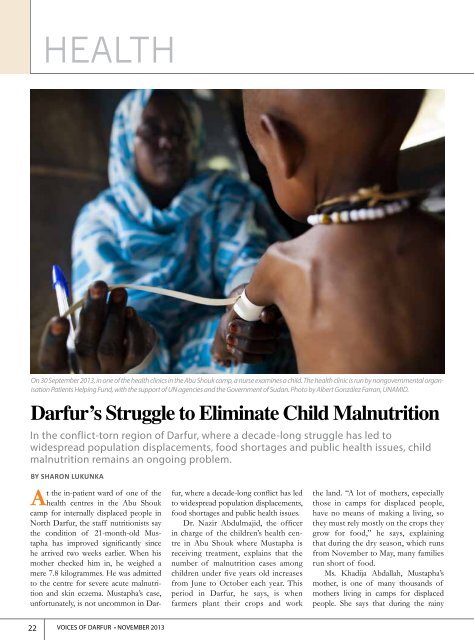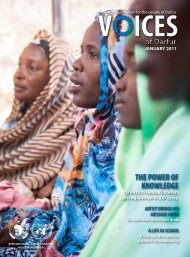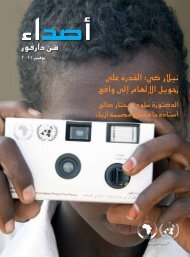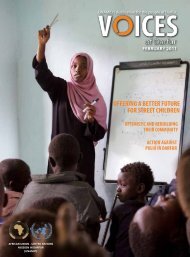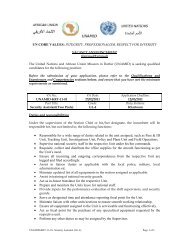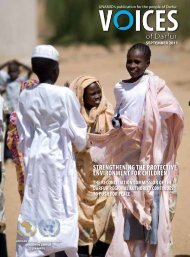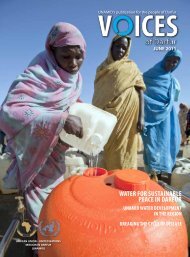Darfur Dances
Download the magazine (PDF) here. - Unamid
Download the magazine (PDF) here. - Unamid
- No tags were found...
You also want an ePaper? Increase the reach of your titles
YUMPU automatically turns print PDFs into web optimized ePapers that Google loves.
HEALTH<br />
On 30 September 2013, in one of the health clinics in the Abu Shouk camp, a nurse examines a child. The health clinic is run by nongovernmental organisation<br />
Patients Helping Fund, with the support of UN agencies and the Government of Sudan. Photo by Albert González Farran, UNAMID.<br />
<strong>Darfur</strong>’s Struggle to Eliminate Child Malnutrition<br />
In the conflict-torn region of <strong>Darfur</strong>, where a decade-long struggle has led to<br />
widespread population displacements, food shortages and public health issues, child<br />
malnutrition remains an ongoing problem.<br />
By Sharon Lukunka<br />
At the in-patient ward of one of the<br />
health centres in the Abu Shouk<br />
camp for internally displaced people in<br />
North <strong>Darfur</strong>, the staff nutritionists say<br />
the condition of 21-month-old Mustapha<br />
has improved significantly since<br />
he arrived two weeks earlier. When his<br />
mother checked him in, he weighed a<br />
mere 7.8 kilogrammes. He was admitted<br />
to the centre for severe acute malnutrition<br />
and skin eczema. Mustapha’s case,<br />
unfortunately, is not uncommon in <strong>Darfur</strong>,<br />
where a decade-long conflict has led<br />
to widespread population displacements,<br />
food shortages and public health issues.<br />
Dr. Nazir Abdulmajid, the officer<br />
in charge of the children’s health centre<br />
in Abu Shouk where Mustapha is<br />
receiving treatment, explains that the<br />
number of malnutrition cases among<br />
children under five years old increases<br />
from June to October each year. This<br />
period in <strong>Darfur</strong>, he says, is when<br />
farmers plant their crops and work<br />
the land. “A lot of mothers, especially<br />
those in camps for displaced people,<br />
have no means of making a living, so<br />
they must rely mostly on the crops they<br />
grow for food,” he says, explaining<br />
that during the dry season, which runs<br />
from November to May, many families<br />
run short of food.<br />
Ms. Khadija Abdallah, Mustapha’s<br />
mother, is one of many thousands of<br />
mothers living in camps for displaced<br />
people. She says that during the rainy<br />
22 VOICES OF DARFUR • NOVEMBER 2013


